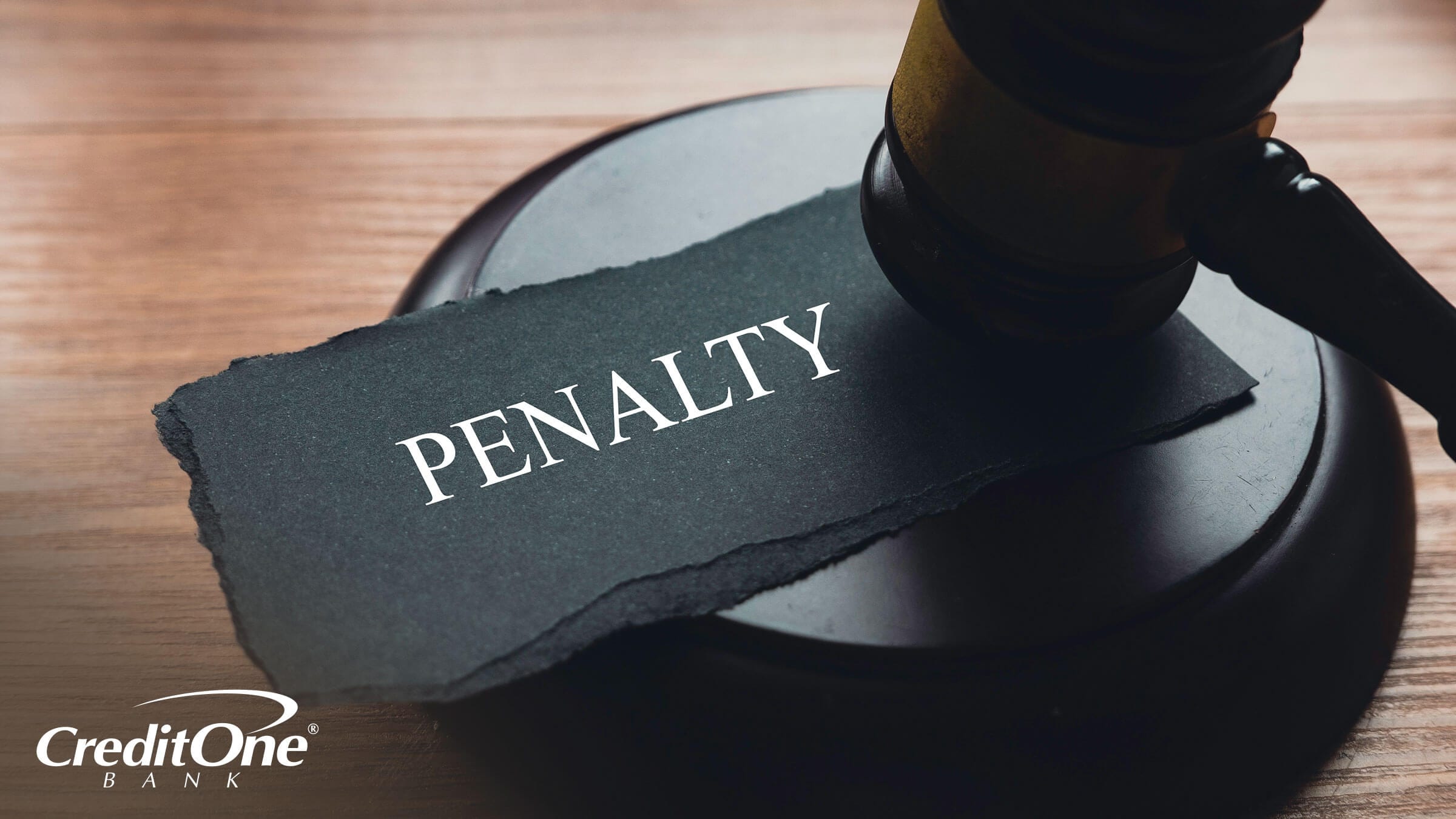
August 26, 2022
Thinking of withdrawing your CD early? Here’s what you need to know about early withdrawal penalties for certificates of deposit.

When you’re talking about your own money, you might think you should be able to do what you want with it. And while that seems logical on the surface, it actually depends on what commitments you have already made with that money.
Certificates of deposit (CDs) are one such commitment that will incur a penalty if you withdraw your funds early. That’s because when you get a CD, you’re agreeing to keep your money invested in it for a preset amount of time in exchange for receiving a higher-than-normal rate of interest on your deposit.
Understanding Early Withdrawal Penalties
Before we can understand early withdrawal penalties on CDs, we need to know why they’re set up the way they are.
Term deposits
A CD is known as a “term deposit” because you need to leave your funds with a financial institution for a certain amount of time, referred to as the CD term. The term might be as little as one month, or as long as 60 months (or more), and you’ll probably net a higher rate of interest if you agree to a longer term.
When you purchase a CD, you’re essentially loaning your money to the bank or other financial institution that’s issuing it. They get to use your money for things like giving loans to other customers. It’s similar in that way to a savings account, except that with a term deposit, you’re agreeing upfront to leave the money untouched for the entire length of the term.
Maturity date
The end of the term is the CD “maturity date,” and at that point your commitment is over. At maturity, you can choose to either renew the CD or withdraw your money with interest.
If you attempt to take out your money before it matures, it’s like trying to pick tomatoes from a seedling you just planted. You might be able to get some small green tomatoes, but they’re going to taste pretty bitter in your salad. You need to wait if you want juicy red tomatoes.
With CDs, the penalty is usually stated as a period of interest. So on top of giving up the interest you would have earned, you’ll also have to pay the equivalent of a certain number of days’ or months’ worth of interest, as determined by the Bank and disclosed at time of account opening.
For example, a CD term of less than a year might have an early withdrawal penalty of 90 days’ worth of interest while a CD term of 13 to 60 months could have a penalty of 180 days’ interest. Each financial institution can set their own terms and corresponding penalties.
Calculating the Early Withdrawal Penalty for a CD
Calculating your early withdrawal penalty is going to depend on a few things. What is the stated penalty for your term? Is it calculated monthly or daily, and is it based on the full balance or the withdrawal amount?
The penalty equation is:
Penalty = Withdrawal Amount x (Interest Rate/365 Days) x Number of Days’ Interest
For example, let’s say you have $100,000 in a 5-year CD earning an interest rate of 3%. The early withdrawal penalty for a CD with that term length at your institution is 180 days’ worth of simple interest, and there’s no partial early withdrawal available (it’s all or nothing).
So your penalty would be $100,000 x (.03/365) x 180 = $1,479.45
Keep in mind that if the minimum penalty is 90 days of interest, and it’s a 60-day CD, you’ll end up netting a loss because your penalty is higher than what you would have earned.
If you discover that your early withdrawal penalty is going to be less than you would make on another CD offering, it might be worth taking the fine and opening a more attractive account instead. For example, if you’re earning 1.75% on your current CD and the penalty is 60 days’ interest, but you can make 3% interest on a different CD, flipping the product to the higher-interest CD could give you the best ROI.
Avoiding CD Early Withdrawal Penalties
The easiest way to avoid early withdrawal penalties on your CD is … well, obviously, not to withdraw your money early. Let the CD mature, and then choose to withdraw it or roll it into another CD at maturity.
But there are also a couple of options that give you more financial flexibility without having to consider early withdrawal.
Earning interest disbursements
Some CDs allow you to send your interest to another bank account each month instead of leaving it in the CD account. Choosing that option gives you regular access to the money you’re earning without waiting for the CD to mature.
Of course, the biggest bang for your buck comes from leaving the interest earned in the CD account, because it will compound and end up making you more. But if the thought of locking up all that money for so long scares you, at least choosing to take the interest as monthly disbursements will give you some flexibility and income.
Building a CD ladder
Another way to avoid early withdrawal penalties is to build a CD ladder, which sets up a series of CDs with staggered maturity dates. This gives you the best of both worlds because you can take advantage of higher interest rates while having access to your funds more frequently than with a single CD.
The best way to set up a ladder is to open several CDs at once. For example, you could have five CDs with terms of one, two, three, four, and five years. Each year one of those CDs will mature, and you can choose to cash it out or reinvest it in another CD.
Like with any financial product, it’s important to understand the terms and conditions you’re signing up for. With a CD, knowing your terms and potential penalties is key to maximizing your return and your experience.
If you’d like to explore some options, Credit One Bank offers a selection of High-Yield Jumbo CDs with extremely competitive rates and terms.



